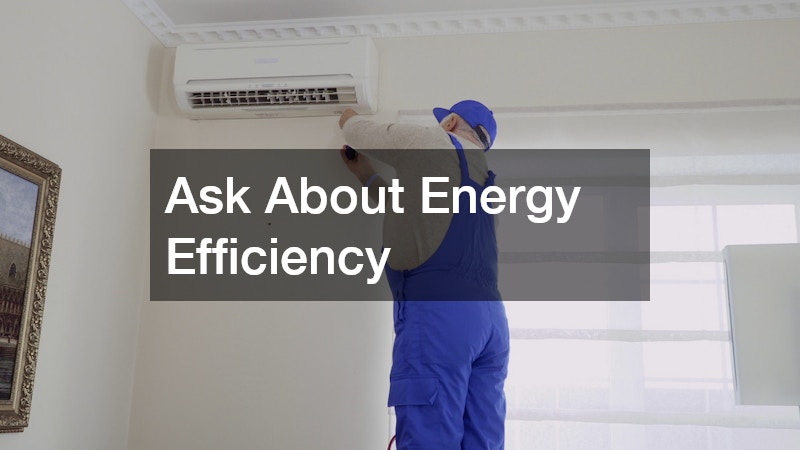Hiring the right HVAC contractor is critical for ensuring your heating and cooling systems run efficiently, safely, and reliably. Whether you need installation, repair, or maintenance, asking the right questions before signing a contract can save you from future headaches, unnecessary costs, and poor workmanship.
Are You Licensed, Bonded, and Insured?
Your first question should confirm that the contractor is licensed to work in your state or municipality. Licensing ensures they’ve met local requirements and are knowledgeable about building codes and safety regulations.
Bonding provides financial protection if the contractor fails to complete the job as promised, and insurance—both liability and workers’ compensation—protects you if something goes wrong during the project.
Always request proof of these credentials and verify them with local authorities.
What Experience Do You Have With My Type of System?
HVAC systems vary widely, from central air units and furnaces to ductless mini-splits and heat pumps. Some contractors specialize in residential work, while others focus on commercial systems. Ask about their experience with your specific system type and brand.
The more experience they have, the more likely they are to diagnose issues accurately and provide long-lasting solutions. If you’re installing a new system, choose a contractor familiar with the latest energy-efficient models and smart HVAC technology.
Can You Provide References or Reviews?
Reputable contractors should be able to give you contact information for recent clients. Speaking with these references can reveal important insights about the contractor’s reliability, professionalism, and quality of work.
In addition, check online reviews and ratings on trusted platforms. Look for consistent positive feedback on communication, punctuality, and follow-up service.
Do You Offer Written Estimates?
Professional HVAC contractors should provide a detailed, written estimate before beginning work. This estimate should include:
Labor costs
Equipment and materials
Warranty details
Timeline for completion
Any potential additional fees
Written estimates make it easier to compare bids and avoid surprises later. Be cautious of estimates that are significantly lower than others—this could signal the use of low-quality parts or shortcuts in labor.
What Warranties Do You Provide?
Most HVAC systems come with two warranties: the manufacturer’s warranty for equipment and the contractor’s workmanship warranty for installation. Ask how long each warranty lasts, what’s covered, and what could void the coverage.
A strong workmanship warranty is a sign that the contractor stands behind their work. Make sure all warranty information is in writing.
How Do You Size New Systems?
If you’re replacing or installing a new HVAC system, proper sizing is critical for efficiency and comfort. Contractors should perform a load calculation (often called a Manual J calculation) that considers your home’s size, insulation levels, windows, climate, and other factors.
Avoid contractors who size systems based solely on square footage or by replacing your existing unit with one of the same size—your needs may have changed since the original installation.
Will You Handle Permits and Inspections?
Many HVAC installations and major repairs require permits and inspections to ensure compliance with local codes. A reputable contractor will handle these on your behalf. Avoid anyone who suggests skipping this step—it can lead to legal issues, fines, or safety hazards.
What Maintenance Services Do You Offer?
Regular maintenance extends the life of your HVAC system and keeps it operating efficiently. Ask if the contractor offers maintenance plans that include seasonal tune-ups, priority service, and discounts on repairs.
This is also a good time to discuss how often filters should be changed and what basic upkeep you can do yourself between professional visits.
How Do You Ensure Energy Efficiency?
Energy efficiency impacts both your utility bills and your environmental footprint. Ask what high-efficiency options are available and whether they install ENERGY STAR®-rated equipment.
Also, inquire about ways to improve your system’s performance—such as duct sealing, thermostat upgrades, or improved insulation—to get the most from your investment.
What Is the Timeline for the Job?
Understanding the project timeline is important for planning. Ask when they can start, how long the work will take, and what factors could cause delays.
A good contractor will communicate clearly about scheduling and keep you updated if changes occur.
Who Will Be On-Site?
Some HVAC companies employ their own crews, while others use subcontractors. Ask who will be doing the work and whether there will be a dedicated project manager or lead technician on-site.
Knowing your point of contact helps ensure clear communication during the project.
Choosing the right HVAC contractor comes down to doing your homework and asking the right questions. By confirming credentials, understanding experience, reviewing warranties, and discussing project details, you can select a professional who will deliver reliable service and high-quality results.

